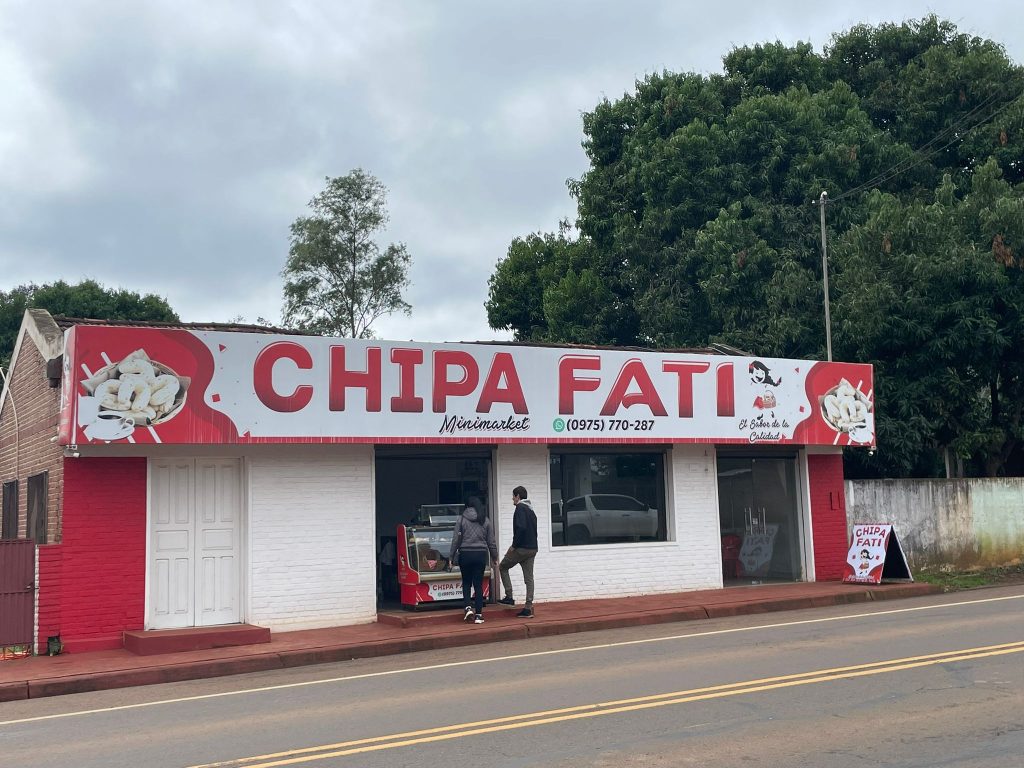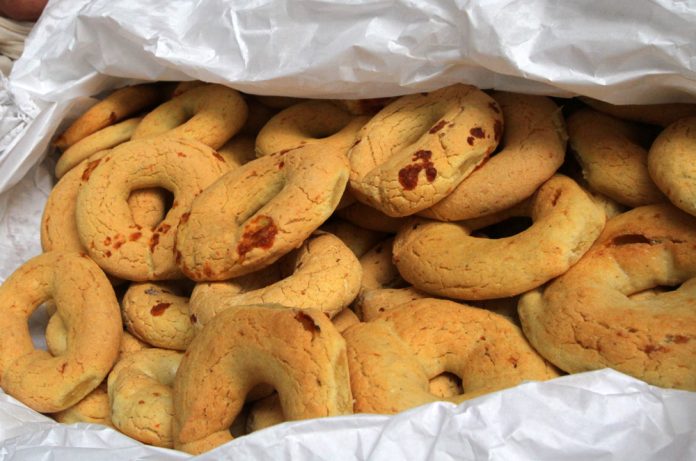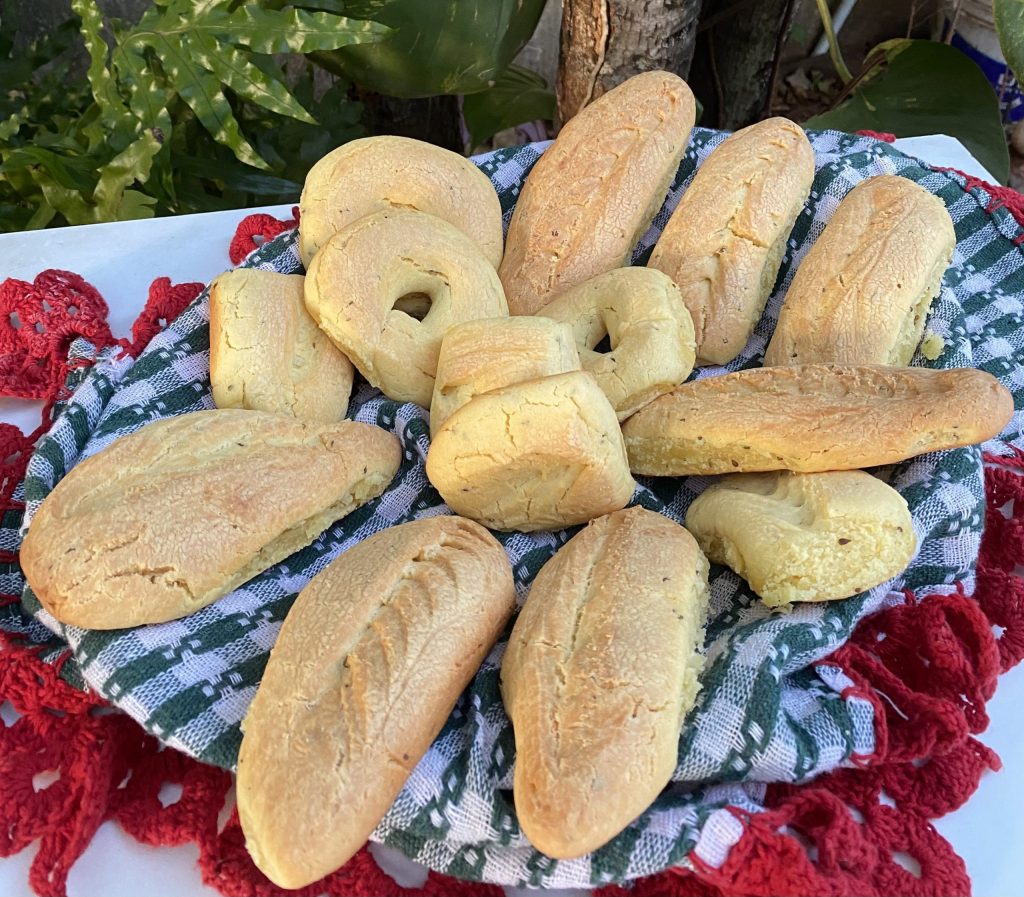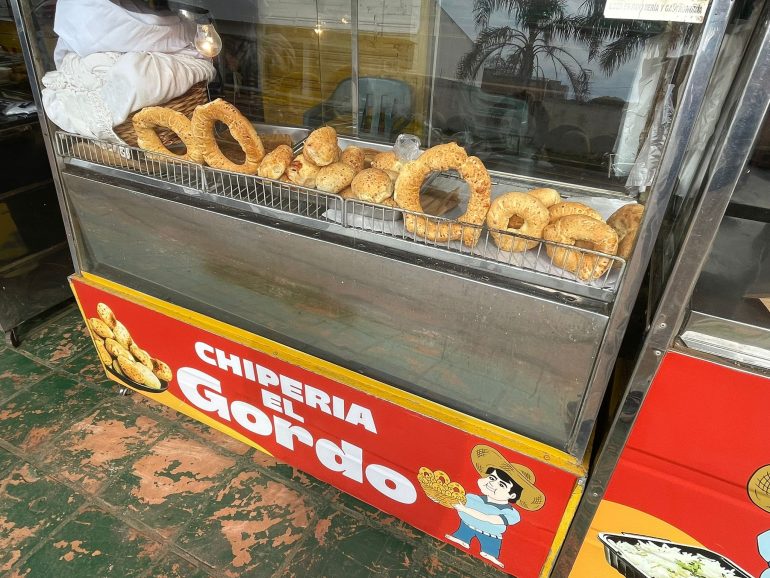Every second Friday of August, Paraguay celebrates the National Day of Chipa (Día Nacional de la Chipa), a national day honouring the country’s most iconic and beloved bread. In 2025, this day falls on August 8, and all roads lead to Coronel Bogado: a small town in southern Paraguay that, since 2017, holds the official title of Paraguay’s National Capital of Chipa.
You sense it before the bus has stopped. A warm, slightly sweet, cheesy scent drifts through the open windows. Then, a man boards the bus, carrying a woven basket lined with a colourful cloth. “Chipa, chipa, chipa!” he calls out gently, not quite shouting, but enough to catch every passenger’s attention.
Inside the basket are freshly baked chipas: ring-shaped, golden, and if you’re lucky, still warm from the oven. As he moves through the aisle offering them for sale, the scent wraps around you like a warm memory. It is a ritual that plays out dozens of times a day along Ruta 1, the road that winds through Paraguay’s southern countryside. And it means one thing: you are close to Coronel Bogado, the official National Capital of Chipa.
Where chipa is more than food
In the heart of Itapúa, about 50 kilometres from the city of Encarnación, lies Coronel José Félix Bogado, a town of just over 20,000 people. At first glance, it may seem modest, no grand architecture, no must-see museum. But this place holds something far more culturally rich: chipa.
Chipa is more than tradition, it is also big business. Coronel Bogado hosts around 10 major producers, alongside countless smaller family-run operations. On peak days, locals can sell up to 40 000 chipas. Even during the quieter months and off season, that number holds at around 20 000 daily. Here, chipa production is one of the city’s primary commercial activities and central to Coronel Bogado’s identity as the National Capital of Chipa.
Coronel Bogado may not feature in glossy travel brochures, but it offers a living tradition, shared through a bite of warm bread. Whether it is a mid-morning snack from a roadside vendor or a family’s Holy Week preparation, chipa connects Paraguayans across generations.

What is chipa?
Chipa is one of the classics traditionnal paraguayan dishes, alongside others. This chewy, cheese-laden bread, shaped into rings or buns, is traditionally made from manioc starch (cassava flour), Paraguayan cheese, eggs, milk or cream and pork fat, sometimes with anise seeds for a subtle aromatic touch.
Some bakers still prepare it in tatakuas, a traditional Paraguayan rustic oven made of clay passed down through generations. When done right, the crust turns golden and crisp, while the inside remains soft and elastic. Although widely consumed year-round, chipa is especially linked to Holy Week, when families across the country prepare it in large batches as a symbol of togetherness and heritage.
You will find more than one variety on offer: the classic chewy, cheesy rings; ones filled with savoury minced meat; versions made with a mix of manioc starch and corn flour; moist, casserole-style corn chipas; chipa cooked on sticks over open flames at festivals; thinner, crispier types with a satisfying crunch, and many more.
Each version can be good, depending on your taste, but one thing is sure the best way to eat is still warm, ideally straight from the oven and fresh.


Global recognition
In 2024, the international food site TasteAtlas ranked chipa among the Top 50 Breads in the World, placing it 46th. The recognition highlights its growing global reputation, as well as its deep cultural roots.
TasteAtlas praised the chipa’s distinctive ingredients, cassava flour, cheese, pork fat, and anise, and the traditional clay oven technique. They noted its popularity not just during holidays but in daily life, especially in small towns like Coronel Bogado. Chipa was officially declared Paraguay’s national food in 2014, further confirming its symbolic importance.
August 8
In 2017, after a long-standing rivalry with the town of Eusebio Ayala, just 1h30 outside Asuncion (also famous for its chipas), Paraguay’s National Directorate of Intellectual Property (DINAPI) officially awarded Coronel Bogado the title of National Capital of Chipa. It was a proud victory, reflecting years of tradition, craftsmanship, and community dedication to this small but mighty bread.
Every year, on the second Friday of August, Paraguay celebrates National Chipa Day (Día Nacional de la Chipa), the entire town of Coronel Bogado usually comes alive with music, dance, and the smoky scent of the freshly baked bread. Locals host food fairs, cooking competitions, and community events.
If you ever wanted to experience Paraguayan culinary culture at its most joyful, this is the time to visit.
Getting to Coronel Bogado
- By bus: Regular services run between Encarnación and Coronel Bogado. You can also take any bus going to Asuncion and let the driver know your stop. The journey takes around 45 minutes and costs approximately Gs. 20,000 (about US$2.65) each way.
- By car: Faster, flexible and reliable. Ruta 1 offers a scenic drive with the added bonus of spontaneous chipa stops along the way.


